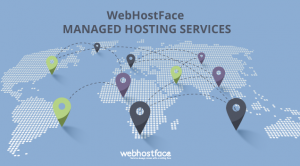-
Table of Contents
Shared hosting: Economical, Easy, and Efficient – Your Starting Project’s Launchpad to Success!
Introduction
Shared hosting is a popular web hosting solution for individuals and small to medium-sized projects due to its cost-effectiveness and ease of use. It allows multiple websites to reside on a single server, where resources such as disk space, bandwidth, and processing power are shared among the users. This setup is particularly beneficial for starting projects for several reasons:
1. Cost Efficiency: shared hosting is generally the most affordable hosting option, as the costs of server maintenance are divided among multiple users. This makes it an ideal choice for new projects with limited budgets.
2. Ease of Setup: shared hosting providers typically offer user-friendly control panels and tools that make it easy to manage a website, even for users with little technical expertise. This can include one-click installations for popular content management systems like WordPress.
3. Maintenance and Administration: The hosting provider is responsible for server maintenance, including software updates, security patches, and hardware issues. This reduces the workload for website owners and allows them to focus on their content and business.
4. Scalability: Many shared hosting providers offer different plans with varying levels of resources, allowing website owners to start with a basic plan and upgrade as their project grows and requires more resources.
5. Built-in Features: shared hosting packages often come with a range of built-in features such as email accounts, databases, and various scripts, which can be beneficial for starting projects that need these functionalities without additional costs or setup.
6. Support: shared hosting services usually provide customer support to assist with any technical issues that may arise, offering peace of mind to those who may not have the technical expertise to troubleshoot problems on their own.
Top 5 Shared Hosting Benefits for Launching Your First Online Project
When embarking on a digital venture, one of the fundamental decisions you’ll face is choosing the right hosting solution for your website. shared hosting, a service where multiple websites reside on a single web server connected to the Internet, offers a plethora of advantages, particularly for those launching their first online project. This article delves into the top five benefits of shared hosting, which make it an attractive option for beginners in the digital realm.
Firstly, cost-effectiveness is a significant draw of shared hosting. For many startups and small projects, budget constraints are a reality. shared hosting providers operate on the principle of economies of scale, where the cost of server maintenance is distributed among all the users on that server. This results in a lower cost for individuals, making it an ideal choice for those who are just starting out and are cautious about over-investing in resources they may not fully utilize. By saving on hosting costs, new projects can allocate funds to other critical areas such as development, marketing, and content creation.
Secondly, shared hosting is renowned for its user-friendly nature. Providers typically offer a control panel, such as cPanel or Plesk, which simplifies website management. Users can easily install applications, set up email accounts, and manage their databases without needing extensive technical knowledge. This ease of use is crucial for beginners who may not have the expertise or the resources to handle complex server management tasks. It allows them to focus on building and managing their website’s content rather than getting bogged down by the technicalities of server administration.
Moreover, shared hosting often comes with a suite of value-added services. Hosting companies usually provide one-click installers for popular content management systems like WordPress, Joomla, or Drupal, which can be a boon for those looking to quickly set up their website without delving into manual installations. Additionally, shared hosting packages often include features such as free domain registration, email hosting, and basic backup services, further reducing the initial setup costs and technical hurdles that a new project might face.
Another benefit is the scalability that shared hosting offers. While it is true that shared hosting has its limitations in terms of resources, many providers allow users to upgrade their plans as their website grows. This means that you can start with a basic plan and, as your site’s traffic increases and your needs become more complex, you can move to a more robust package without the need to switch to a completely different hosting type. This scalability ensures that your hosting solution can grow alongside your project.
Lastly, shared hosting providers typically include some level of customer support. For novices, having access to technical support can be invaluable. Whether it’s for troubleshooting issues, answering questions, or providing guidance on best practices, customer support can be a lifeline for those who are still learning the ropes of managing an online presence. The support offered by hosting companies can range from 24/7 live chat and phone support to extensive knowledge bases and community forums.
In conclusion, shared hosting presents a compelling package for individuals or small teams launching their first online project. Its affordability, user-friendliness, bundled services, scalability, and customer support make it an excellent starting point. By choosing shared hosting, newcomers can navigate the initial stages of their online journey with greater ease and confidence, laying a solid foundation for future growth and success.
How Shared Hosting Price Makes It the Ideal Choice for Start-up Projects
Shared hosting emerges as a beacon of affordability and convenience for start-up projects in the vast sea of web hosting options. As entrepreneurs and small business owners embark on their digital journey, the cost of establishing an online presence can be a significant hurdle. shared hosting, however, offers a cost-effective solution that aligns perfectly with the financial constraints and technical requirements of nascent ventures.
The primary allure of shared hosting lies in its pricing model. By allowing multiple users to share the resources of a single server, hosting providers can offer services at a fraction of the cost of dedicated hosting plans. This shared economy of web hosting not only makes it accessible for start-ups to get online but also ensures that they can allocate more of their limited resources to other critical areas of their business, such as product development, marketing, and customer service.
Moreover, shared hosting plans often come with a suite of tools and services specifically designed to assist users with little to no technical expertise. This is particularly beneficial for start-up projects where the focus is on growing the business rather than managing server infrastructure. With features such as one-click installations for popular content management systems like WordPress, Joomla, or Drupal, entrepreneurs can quickly set up their websites without the need for specialized IT skills. Additionally, the inclusion of website builders, templates, and plugins further simplifies the process of creating a professional-looking website.
Another significant advantage of shared hosting for start-up projects is the scalability it offers. Initially, a new website may not attract high levels of traffic, making the vast resources of a dedicated server unnecessary. shared hosting provides a comfortable starting point, and as the project grows and traffic increases, most hosting providers offer easy upgrades to more robust plans or even to different types of hosting that can better accommodate the increased demand. This scalability ensures that start-ups can maintain a balance between performance and cost without overcommitting resources prematurely.
Furthermore, shared hosting typically includes maintenance and support services, which are invaluable for start-ups. Hosting providers take responsibility for server maintenance, including software updates, security patches, and technical support, reducing the burden on the start-up’s team. This level of support is crucial, especially during the early stages of a project when the focus should be on innovation and growth rather than troubleshooting technical issues.
Security is another concern for start-up projects, and shared hosting providers understand this. They implement various security measures such as firewalls, intrusion detection systems, and regular backups to protect the data of all users on the server. While shared hosting does not offer the same level of security as a dedicated server might, for most start-up projects, the security measures in place are more than adequate.
In conclusion, shared hosting stands out as the ideal choice for start-up projects due to its cost-effectiveness, ease of use, scalability, and comprehensive support. It provides a low-risk entry point for entrepreneurs to establish their online presence and grow their business without the need for significant upfront investment or technical know-how. As such, shared hosting is not just a hosting solution; it is a strategic business decision that enables start-ups to navigate the early stages of their journey with confidence and focus on what truly matters – bringing their vision to life.
Q&A
1. Cost-Effectiveness: shared hosting is generally the most affordable hosting option, making it ideal for starting projects with limited budgets.
2. Ease of Use: shared hosting providers typically offer user-friendly control panels and tools that help beginners set up and manage their websites without needing advanced technical knowledge.
Conclusion
Shared hosting offers several benefits for starting projects, including cost-effectiveness, ease of use, minimal technical maintenance, built-in cPanel for managing the website, scalability options for growing websites, and included support from the hosting provider. These advantages make shared hosting an attractive option for individuals and small businesses launching new websites.




